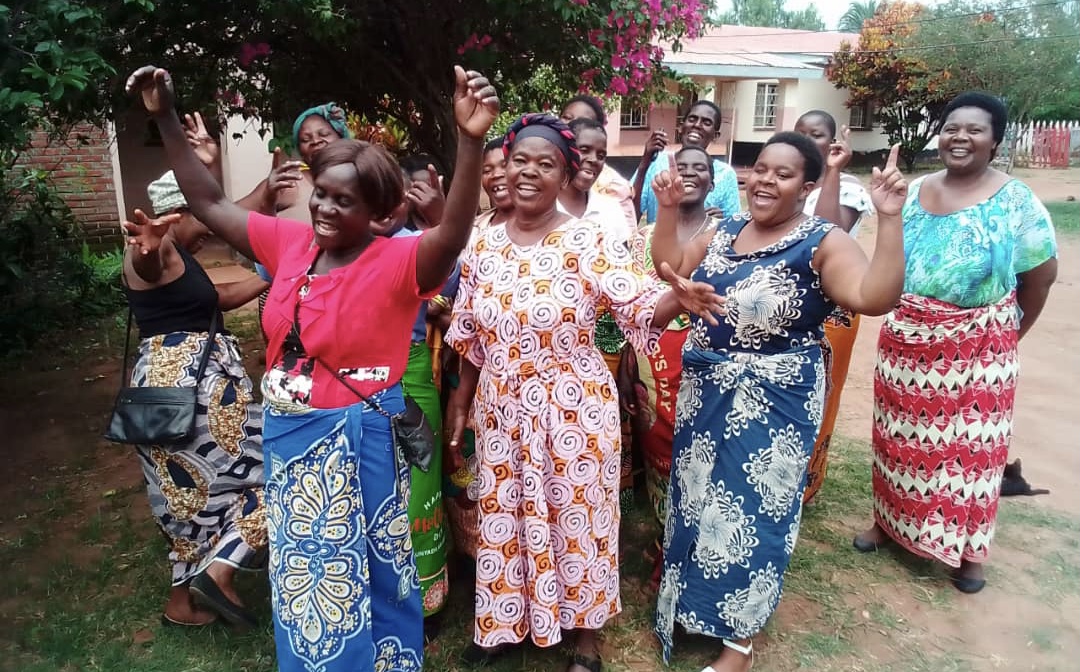
On 15 March 2022, the UN General Assembly adopted Resolution 76/252, “Addressing the Situation of Widows” by consensus. This piece of international legislation is the first to address widowhood as a human rights issue, acknowledging the unique harms, violence, and discrimination they experience as a holistic issue that needs cross-cutting responses.
The resolution looks to provide Member States with specific and actionable steps to mainstream and protect the rights of widows within the UN system as well as in their domestic context. Notable portions of the resolution include linkages to the Sustainable Development Goals; Child, Early and Forced Marriage; and Women, Peace and Security (WPS).
The Global Fund for Widows welcomes the inclusion of several key components which formed the basis of our outreach and advocacy work throughout the resolution process, such as:
· Registration of all marriages. Establishing mechanisms to ensure that marriages are registered is crucial to ensuring that women are able to claim legal rights and protections in the event of widowhood. These include having legal recognition of the right to inherit, access certain social programs, as well as offer protections and pathways for justice regarding harmful practices.
· Inclusion in SDG National Action Plans (NAPs) and COVID-19 Recovery Plans. Covid has been a proliferator of widowhood since there are disproportionate fatality rates between men and women (1.5-2 male deaths for every female). Due to their exclusion and marginalization in some parts of the world, the pandemic has left even more women struggling economically. With the call for their inclusion in social protection planning and programs, the most vulnerable will be better cared for.
· Recognize and condemn harmful widowhood practices as violence against women: Harmful practices run the gamut, from emotional, physical, and sexual violence and abuse, however, many communities in which they are practiced view them as common and expected behavior, rather than actual violence. This resolution asks states to re-conceptualize and recategorize these acts as violence against women and stop their commission to afford widows legal and physical protection.
· Acknowledges widows’ economic and social contributions to their communities and countries: The text of the resolution notes that widows are valuable members of society and recognizes their economic contributions and the need for widows’ financial inclusion and empowerment. As an organization focusing on widows’ economic and social inclusion, GFW sees this as central to advancing many of the development challenges they face.
· Calling upon Member States to address their inclusion in WPS NAPs: Women experience conflict differently than men, which is why the UN Security Council (UNSC) has sought to mainstream women’s experiences in peace and security frameworks. While widows can have meaningful inputs throughout the conflict cycle, their meaningful participation in peacebuilding and post-conflict recovery dialogues is critical to building peaceful, inclusive, and resilient societies.
· Disaggregated data collection. The membership acknowledged that there is a significant lack of data, making it difficult to fully understand and address the needs of widows. As a result, the text asks for disaggregated data collection that includes sex, age, marital status, and income, among others to close these gaps.
The resolution’s adoption and the subsequent discussions around it have already begun to influence dialogues across the UN system, including the 66th Commission on the Status of Women and UNSC debates. There are many opportunities for future work contained in the resolution, but there are several pathways that GFW has identified at the UN and beyond:
· Registering and defining marriage. One of the most contentious points of the resolution’s negotiations was defining marriage and what types of unions can “count.” The final text states, “to establish domestic processes for registering and recognizing all marriages, in accordance with domestic legislation and justice systems.” In some countries, customary and cultural marriages are not legally recognized by the state, which still prevents many women from accessing these rights; the most vulnerable will still remain on the margins. Advocacy to change domestic legislation can, and should, be undertaken at the national level to ensure that these gaps are closed.
· Mainstreaming in the UNSC. Due to the separation of mandates and powers, members of the GA felt that while encouraging States to take up the matter in their national capacities, the body was not able to request these measures from the Council. As a result, further action among UNSC can be taken up.
· Human Rights bodies: We hope that the momentum gained throughout the GA resolution process is not lost, and is picked up on by other human rights entities such as the Human Rights Council and treaty bodies like the CEDAW. The recognition of the issue in the GA and the language of the text provide useful starting points for Geneva-based mechanisms to consider the issue within their own mandates.
· Commission on the Status of Women (CSW). While the 66th Session's Agreed Conclusions did include widows and marital status for the first time, the inclusion of widows in dialogues in the coming priority and review themes will be meaningful to the advancement of their issues.
· Sustainable Development Goals: Widows’ mention and mainstreaming within the High-Level Political Forum’s outcome document is another important discussion in which widowhood should be mainstreamed at the policy level to encourage meaningful action in implementation.
GFW was heartened to see constructive and positive engagement from the membership, spanning geographic, culturally, and politically diverse states to reach a consensus on the text. The commitment of many states to progressive language and feminist dialogues were crucial in ensuring that previously agreed language was maintained, and even walked forwards, which is at the core of the widow’s movement as it seeks to shift the paradigm on gender and women’s equality.